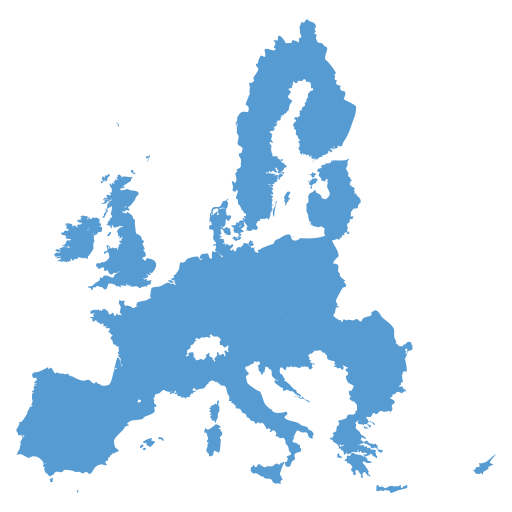- Casino News
- USA News
Europe’s Gambling Tax Hikes: Short-Term Gains, Long-Term Risks


Europe’s Gambling Revenue Dilemma
Governments across Europe are increasingly targeting the online gambling industry to boost tax revenue, but early evidence suggests that the strategy may carry significant long-term risks. In an era of slow economic growth and constrained public budgets, online gambling is seen as a convenient source of visible, immediate funds.
According to the European Gaming & Betting Association (EGBA), operators contributed €3.8 billion in taxes to the European economy in 2024. Yet, policymakers are pressing for higher levies, often justifying them on public health grounds. Virve Marionneau, a tax expert and associate professor at Helsinki University, notes that gambling is increasingly treated as a “relatively painless” source of government income, alongside excise taxes on health and environmental grounds.
The Netherlands offers a cautionary case. The government raised the gambling tax from 30.5% to 34.2% of gross gaming revenue (GGR) in January 2025, with a further increase to 37.8% planned for 2026. Officials had projected an additional €200 million in annual revenue, but early data from licensed operators indicate a 25% drop in GGR during the first half of 2025, effectively erasing the expected gains.
Regulators and operators warn that higher taxes are often passed on to consumers, through higher fees, lower bonuses, or less favorable odds, pushing players toward unlicensed platforms. Marloes Derks, spokesperson for the Dutch regulator KSA, emphasizes that strong legal markets are essential to counter illegal gambling, yet the government has indicated it will maintain the current policy despite revenue shortfalls.
| Country | Previous Tax Rate (GGR) | New/Proposed Tax Rate (GGR) | Year |
|---|---|---|---|
| Netherlands | 30.5% | 34.2% (2025), 37.8% (2026) | 2025–2026 |
| Sweden | 18% | 22% | 2024 |
| Romania | 21% | 27% | 2025 |
| Czech Republic | 23% | 30% | 2024 |
| Slovakia | – | 30% (proposed) | 2025 |
| Germany | – | 5.3% levy on slot/poker | 2024 |
| France | – | Expanded GGR taxation, +€1.6B revenue | 2025 |
A Broader European Trend
Similar measures are underway across Europe. Sweden plans to raise its online gambling tax from 18% to 22%, though industry estimates suggest the additional revenue may be significantly lower than official projections. Romania will increase its GGR tax from 21% to 27%, while the Czech Republic raised rates from 23% to 30% in 2024. Slovakia has proposed a 30% tax, citing concerns over social harm, and Germany has seen much of its online slot activity move to unlicensed operators due to high levies, with tax revenue declining by 16% in 2024. France, already one of the costliest markets for operators, intends to expand gross gaming revenue taxation to generate an additional €1.6 billion. According to Marionneau, some countries, like Malta and Estonia, deliberately keep taxes low to attract operators, while others, such as France, use high rates to limit market participation.
The UK, Europe’s largest online gambling market, may soon join this trend. The government has proposed consolidating its three-tier remote gambling tax system into a single rate, potentially raising all sectors to 21%. Some policymakers advocate much higher increases, with the Institute for Public Policy Research suggesting rates up to 50% to fund social programs.
Industry groups warn that such hikes could drive players toward unlicensed operators, a concern regulators dismiss. Dan Waugh, partner at Regulus Partners, highlights the contradictory messaging from government departments: while some view gambling as a legitimate pastime, others see it as a major public health threat. This uncertainty complicates operators’ planning and could have repercussions beyond the UK. Gustaf Hoffstedt, secretary general of the Swedish Trade Association for Online Gambling, notes that declining participation in licensed markets undermines both revenue and legitimacy. “A gambling market that loses players to the unlicensed sector risks becoming irrelevant,” he says.
Raising online gambling taxes may provide short-term government revenue, but evidence shows it can shrink the legal market, push players to unlicensed platforms, and undermine long-term industry stability.
Potential Long-Term Risks
Europe’s rush to tax online gambling reflects a desire for immediate fiscal relief. Yet early indicators—from the Netherlands to Germany—suggest that aggressive taxation may shrink legal markets, push consumers to unregulated platforms, and ultimately undercut expected revenue gains. Policymakers face a delicate balance: securing short-term budgetary benefits without compromising the long-term sustainability of regulated gambling markets.








